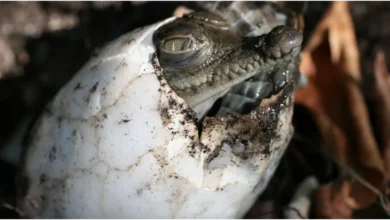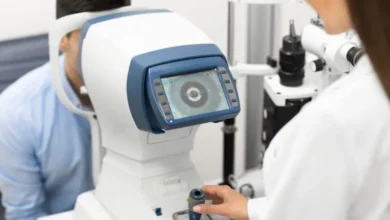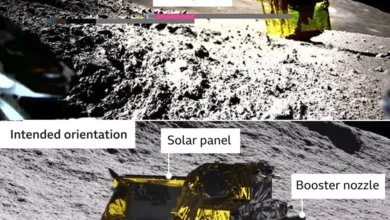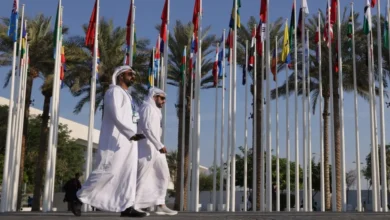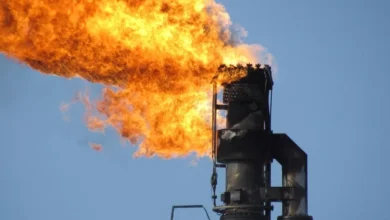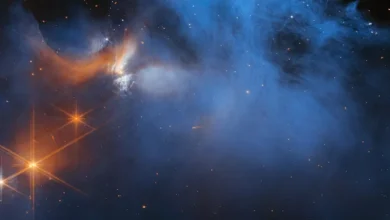ISS launch: New US-Russian crew heads to space station
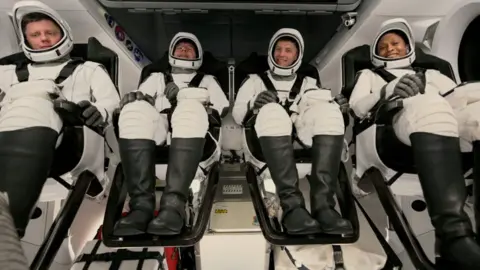
A SpaceX Falcon 9 rocket carrying three US astronauts and one Russian cosmonaut has blasted off from Florida bound for the International Space Station (ISS).
The Crew-8 mission will be in space for six months. Space is one of the few areas where the US and Russia continue to co-operate closely despite the war in Ukraine.
The three men and one woman are in a capsule used in space four times before by Elon Musk’s SpaceX firm.
They plan to do various experiments.
One will involve growing artificial replicas of human organs in the low-gravity environment – which is not possible on Earth.
It will be one of more than 200 science experiments that are to be conducted during the mission, scheduled to finish in mid-August, according to Nasa’s ISS programme manager Joel Montalbano.
The crew of four blasted off from the Kennedy Space Center in Florida at 22:53 local time (03:53 GMT Monday).
The first launch attempt on Saturday was called off due to strong winds.
A live webcast broadcast by Nasa on Sunday showed the 70m (229 ft)-tall rocket launching into the night sky, with clouds of vapour surrounding it as it rose off the ground.
The Falcon propelled the spacecraft it was carrying – named Endeavour – into orbit nine minutes after lift off.
Footage from the cabin showed the four crew members strapped into the spacecraft in their black and white flight suits.
“What an incredible ride to orbit,” flight commander, Matthew Dominick, is quoted by Reuters news agency as saying as he radioed to ground control.
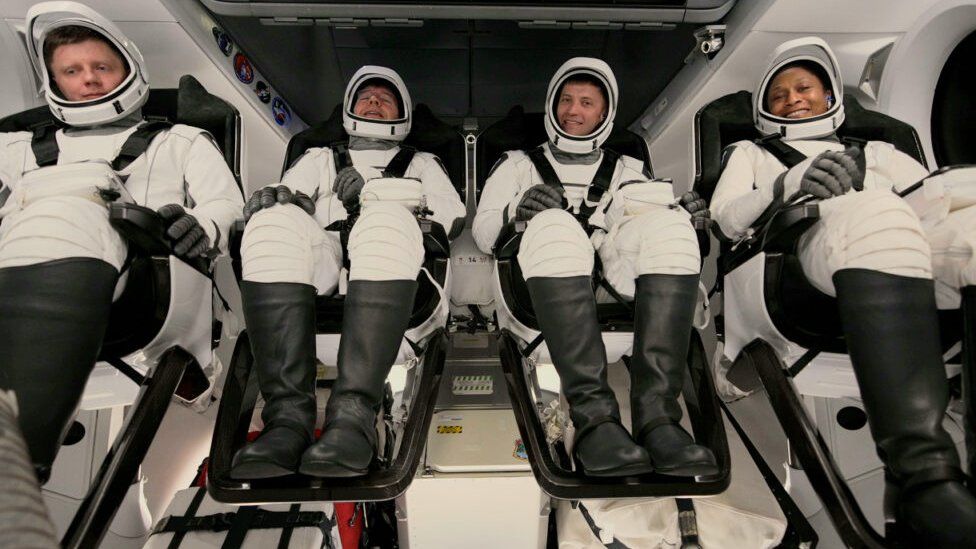
Mr Dominick and Russian Alexander Grebenkin were making their first flight into space. The other crew members on board were astronaut Jeanette Epps and physician Michael Barratt- the Crew-8 pilot – who’s on his third visit to the ISS.
The four crew members are scheduled to reach the ISS on Tuesday, docking with the orbital laboratory some 250 miles (420km) above the Earth.
They will join a seven-person crew currently at the space station, Nasa said.
The International Space Station – about the length of a football field and the largest human-made object in space, according to Reuters news agency – is a rare area of international co-operation between various global governments. It has been continuously maintained by a US-Russian consortium including Canada, Japan, and 11 European countries.
Alexander Grebenkin is the latest cosmonaut to fly aboard a US spacecraft under a deal signed in 2022 by Nasa and the Russian space agency, Roscosmos.

